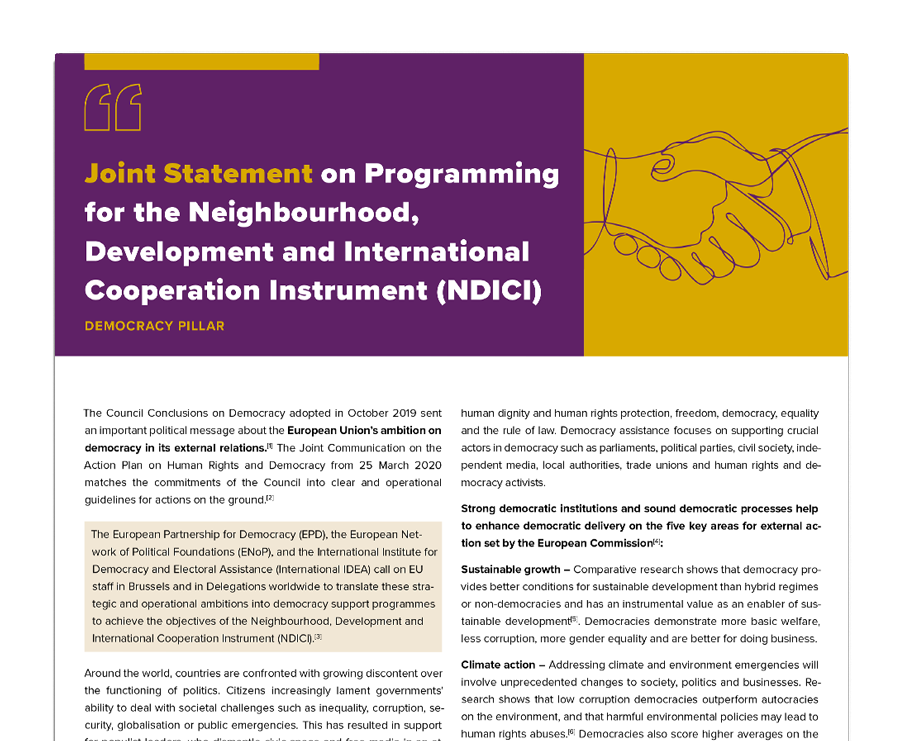Want ENoP in your Inbox?
Receive the latest news from the ENoP Network
"*" indicates required fields

The Council Conclusions on Democracy adopted in October 2019 sent an important political message about the European Union’s ambition on democracy in its external relations. The Joint Communication on the Action Plan on Human Rights and Democracy from 25 March 2020 matches the commitments of the Council into clear and operational guidelines for actions on the ground.
The European Partnership for Democracy (EPD), the European Network of Political Foundations (ENoP), and the International Institute for Democracy and Electoral Assistance (International IDEA) call on EU staff in Brussels and in Delegations worldwide to translate these strategic and operational ambitions into democracy support programmes to achieve the objectives of the Neighbourhood, Development and International Cooperation Instrument (NDICI).
Around the world, countries are confronted with growing discontent over the functioning of politics. Citizens increasingly lament governments’ ability to deal with societal challenges such as inequality, corruption, security, globalisation or public emergencies. This has resulted in support for populist leaders, who dismantle civic space and free media in an attempt to stifle opposition. The current crisis caused by the COVID-19 pandemic is likely to exacerbate such trends further, and a number of leaders are taking advantage of the situation to monopolize power and limit liberal freedoms in a disproportionate way. It will be essential to ensure oversight rules are restored, emergency powers are limited and electoral processes are restored as soon as this is responsible from a health perspective. The anticipated socio-economic implications of the pandemic, moreover, are likely to prompt new social contracts between governments and citizens, for which democratic systems are best apt to deliver. The crisis thus highlights the need for free speech, democratic governance and multilateralism.
The EU has a strategic interest to support its member states and partner countries in opting for democratic solutions to the above mentioned challenges, while respecting its core values of human dignity and human rights protection, freedom, democracy, equality and the rule of law. Democracy assistance focuses on supporting crucial actors in democracy such as parliaments, political parties, civil society, independent media, local authorities, trade unions and human rights and democracy activists.
Strong democratic institutions and sound democratic processes help to enhance democratic delivery on the five key areas for external action set by the European Commission:
Sustainable growth – Comparative research shows that democracy provides better conditions for sustainable development than hybrid regimes or non-democracies and has an instrumental value as an enabler of sustainable development. Democracies demonstrate more basic welfare, less corruption, more gender equality and are better for doing business.
Climate action – Addressing climate and environment emergencies will involve unprecedented changes to society, politics and businesses. Research shows that low corruption democracies outperform autocracies on the environment, and that harmful environmental policies may lead to human rights abuses. Democracies also score higher averages on the Environmental Performance Index.